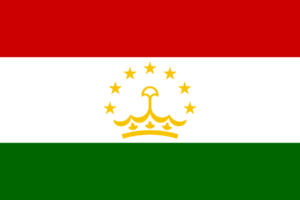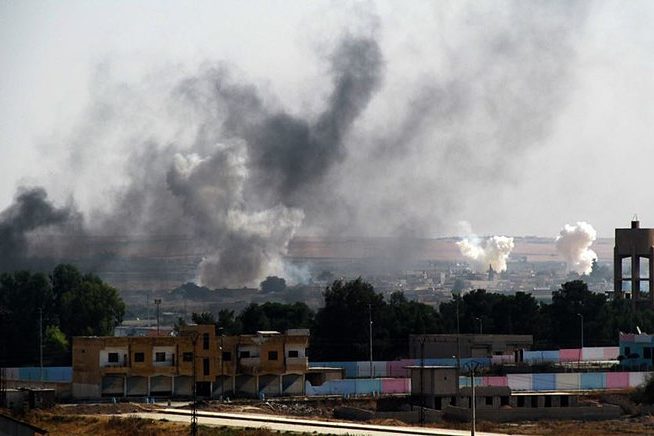
Oct 15, 2019 | News
Today, ICJ called on Turkey to comply with its obligations under the UN Charter, international humanitarian law and international human rights law, immediately end its military operations in Syria, and protect and ensure the protection of the Syrian civilian population.
The ICJ also reiterated its call on all parties to the Syrian conflict to respect and comply with international humanitarian law and international human rights law.
On October 9, Turkey initiated operation “Peace Spring” in Rojava, the Kurdish-led Syrian Democratic Forces (SDF)-held territory in north-east Syria, with the stated aim of securing Turkey’s border, “fighting terrorism” and facilitating the return of refugees to Syria. Turkey claimed to be acting pursuant to its right to self-defence under article 51 of the UN Charter, as well as UN Security Council resolutions on the fight against terrorism.
The ICJ recalled that none of these UN Security Council resolutions authorizes the use of armed force in violation of international law, and that the UN Charter prohibits the use of armed force by States, save when authorized by the UN Security Council or in self-defence.
Use of force in self-defence is lawful only when necessary to repel an armed attack and when proportionate to such attack. Military operations failing to abide by such requirements are in breach of the UN Charter.
“Turkey’s military operations violate the UN Charter and exemplify how the banalization of the illegal use of armed force continues to erode and dismantle the very fabric of the international legal order,” said Said Benarbia, the ICJ MENA Programme Director.
He added, “Instead of standing by while international law is being violated, the UN Security Council must take swift, appropriate measures to address the situation and to restore and maintain international peace and security.”
While UN Security Council member States have failed to find an agreement on even a statement on Turkey’s military operations in Syria, Turkish military operations continue to have a devastating impact on the general population, including multiple civilian casualties, attacks against civilian objects, including medical facilities and water supplies and infrastructure, and the displacement of more than 150,000 people, mainly civilians.
Turkish forces and the Turkish-backed armed groups have allegedly been responsible for violations of international humanitarian law and international human rights law. Members of one of these groups, the Ahrar Al-Sharqiya, have been accused of the extrajudicial execution of at least nine civilians, among whom is Kurdish politician and women’s rights activist Harvin Khalaf; torture and other ill-treatment; kidnapping; and looting and seizure of private property.
Turkey’s Defence Ministry said 595 “terrorists” were “neutralized” since the start of “Peace Spring.”
Under international humanitarian law, parties to an armed conflict must respect and protect the civilian population, and refrain from any direct, indiscriminate or disproportionate attack against civilians and civilian objects. International human rights law also continues to apply during the conflict.
“Turkish authorities must investigate and prosecute unlawful killings committed in the context of operation “Peace Spring,” including extrajudicial executions amounting to war crimes,” Benarbia said.
He added, “If no action is taken by these authorities, States must act, collectively and individually, to hold to account all those responsible for such crimes.”
Contact
Said Benarbia, Director of the ICJ Middle East and North Africa Programme, t: +41-22-979-3817; e: said.benarbia(a)icj.org
Syria-Turkey operations-News-Press releases-2019-ARA (Arabic version, in PDF)
Syria-Turkey operations-News-Press releases-2019-TUR (Turkish version, in PDF)
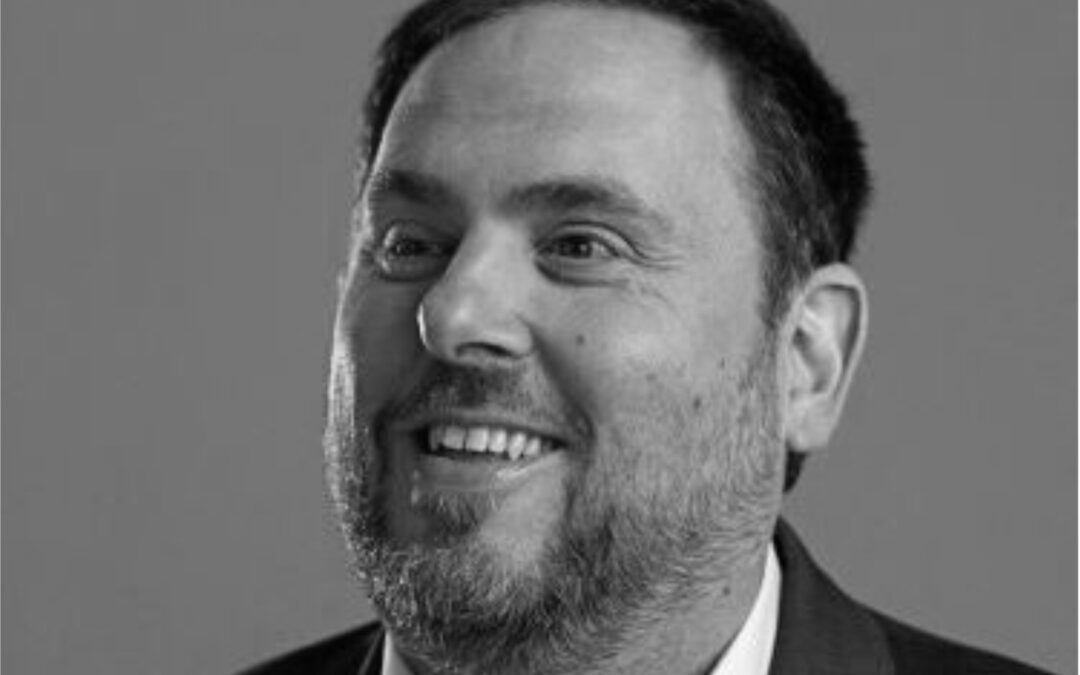
Oct 14, 2019 | Multimedia items, News, Video clips
The conviction today of Catalan separatist leaders of broadly defined offences of sedition unduly restricts rights of freedom of expression, assembly and association, the ICJ said today.
“These convictions represent a serious interference with the exercise of freedom of expression, association and assembly of the leaders. The resort to the law of sedition to restrict the exercise of these rights is unnecessary, disproportionate and ultimately unjustifiable” said Massimo Frigo, ICJ Europe and Central Asia Senior Legal Adviser.
The ICJ also stressed that the overly broad definition of the crime of sedition applied in this case creates a high risk of arbitrariness.
“We are concerned that the Supreme Court does not comply with Spain’s obligations under international human rights law in the consideration of the charges against these defendants and this seriously undermines these convictions,” he added.
Nine of the twelve leaders on trial – including high-ranking Catalan government officials –were convicted of sedition in connection with their part in the administration on 1 October 2017 of a referendum on Catalonian independence. The referendum was conducted despite having been declared illegal by the Constitutional Court.
The voting process during the referendum was forcibly suppressed in many locations by the police, with credible reports of the use of unnecessary and disproportionate force in breach of Spain’s international law obligations.
“Interference with peaceful political expression and protest is not acceptable, save in limited circumstances where it is strictly necessary and proportionate for compelling purposes such as national security .” Frigo said.
Contact
Massimo Frigo, Senior Legal Adviser, ICJ Europe Programme, t: +41 22 979 38 05 ; e: massimo.frigo(a)icj.org
Background
The 12 people convicted in connection with the October 2017 referendum include Oriol Junqueras (13 years of imprisonment for sedition and abuse of power), former Catalan vice-president; Carme Forcadell, former Catalan parliament speaker (11 years and six months of imprisonment for sedition); eight former ministers in the Catalan government – Jordi Turull (12 years of imprisonment for sedition and abuse of power), Raül Romeva (12 years of imprisonment for sedition and abuse of power), Joaquim Forn (10 years and six months of imprisonment for sedition), Santiago Vila (10 months for disobedience), Meritxel Borràs (10 months for disobedience), Dolors Bassa (12 years of imprisonment for sedition and abuse of power), Josep Rull (10 years and six months of imprisonment for sedition), Carles Mundó (10 months for disobedience); Jordi Sànchez (9 years of imprisonment for sedition) the former leader of the Catalan National Assembly (ANC); and Jordi Cuixart (9 years of imprisonment for sedition), former head of the independence organisation Òmnium Cultural.
Spain has obligations to protect freedom of expression, including political expression, under Article 10 of the European Convention on Human Rights (ECHR) and Article 19 of the International Covenant on Civil and Political Rights (ICCPR); and freedom of peaceful assembly and association under Article 11 ECHR and Article 21 and 22 ICCPR.
The Human Rights Committee in its General Comment on freedom of expression has affirmed that: “extreme care must be taken by States parties to ensure that treason laws and similar provisions relating to national security, whether described as official secrets or sedition laws or otherwise, are crafted and applied in a manner that conforms to the strict requirements of paragraph 3” of article 19 ICCPR, which requires that restrictions on freedom of expression be provided for by law and must be necessary for a legitimate purpose, such as national security or public order .) Rights to participate in public life are protected under Article 25 ICCPR.
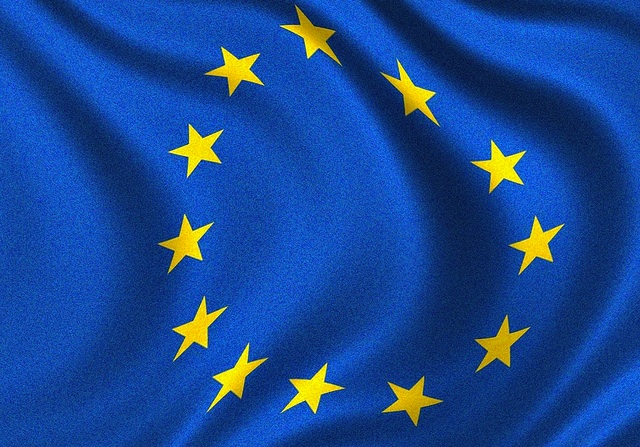
Sep 27, 2019 | News
On 27 September, the Nederlands Juristen Comité voor de Mensenrechten (NJCM) and the ICJ held a a closed-door roundtable discussion in the Hague on investigative procedures and procedural rights in counter terrorism: implementing the EU Directive 2017/541 on combating terrorism. The discussion took place in the framework of the EU funded project “Judges Uniting to Stop Terrorism with International, Constitutional and European law (JUSTICE) project”.
Judges, prosecutors and lawyers from 11 EU countries shared their practices and experiences in the application of the investigative procedures and procedural rights related to the prosecution of the criminal offences enshrined in the EU Directive 2017/541 on combating terrorism within the different legal systems of the European Union (EU).
The discussion focused on investigative powers, evidence gathering, pre-trial detention, cross border cooperation and the European Arrest Warrant. These practices were assessed in light of international human rights law principles in order to identify best practices that could be promoted throughout the EU.
This is the second out of four roundtables organized within this project between April and November 2019 by the ICJ and partners.
See the agenda here.
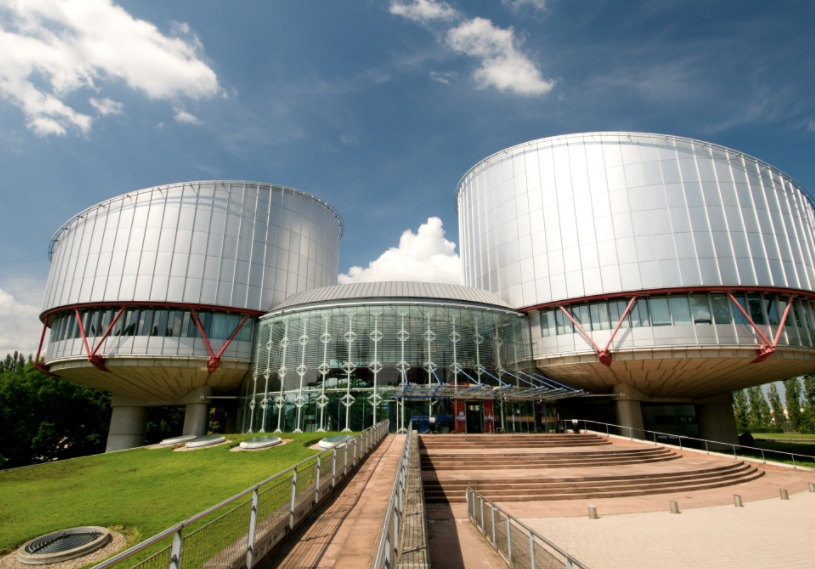
Jun 20, 2019 | Advocacy, Cases, Legal submissions, News
The International Commission of Jurists, jointly with Amnesty International and the Turkey Litigation Support Project intervened today before the European Court of Human Rights in the case of a Turkish public servant, Hamit Pişkin, who was dismissed by executive decrees during the State of Emergency.
The case is key with regard to the situation in Turkey now and under the State of Emergency, because it raises significant questions regarding procedural rights in employment proceedings leading to the dismissal of an employee working with or for a State agency on grounds related to national security, including under a State of Emergency, as well as the application of the principles of legality and legal certainty and non-retroactivity as applied to national security, including in counter-terrorism.
During the State of Emergency in Turkey, that lasted two years from 2016 to 2018, almost 130,000 employees in the public sector were dismissed under emergency legislation. Their dismissal however remained in force also after the end of the State of Emergency.
In the submission, the interveners provide the European Court of Human Rights with observations concerning:
- the applicability of the criminal limb of Article 6 of the European Convention on Human Rights (ECHR) to judicial proceedings leading to dismissal of an employee of a public institution;
- the lack of procedural guarantees in the dismissal process necessary to comply with Article 6 of the ECHR, in particular with the presumption of innocence Article 6(2), in such proceedings;
- the application of the principles of legal certainty and non- retroactivity to such decisions (by addressing the problems arising from the application of State of Emergency decrees to events that occurred before the declaration of the State of Emergency).
The full intervention can be downloaded here: Piskin_v_Turkey-ECtHR-TPI-ICJAITLSP-2019-eng
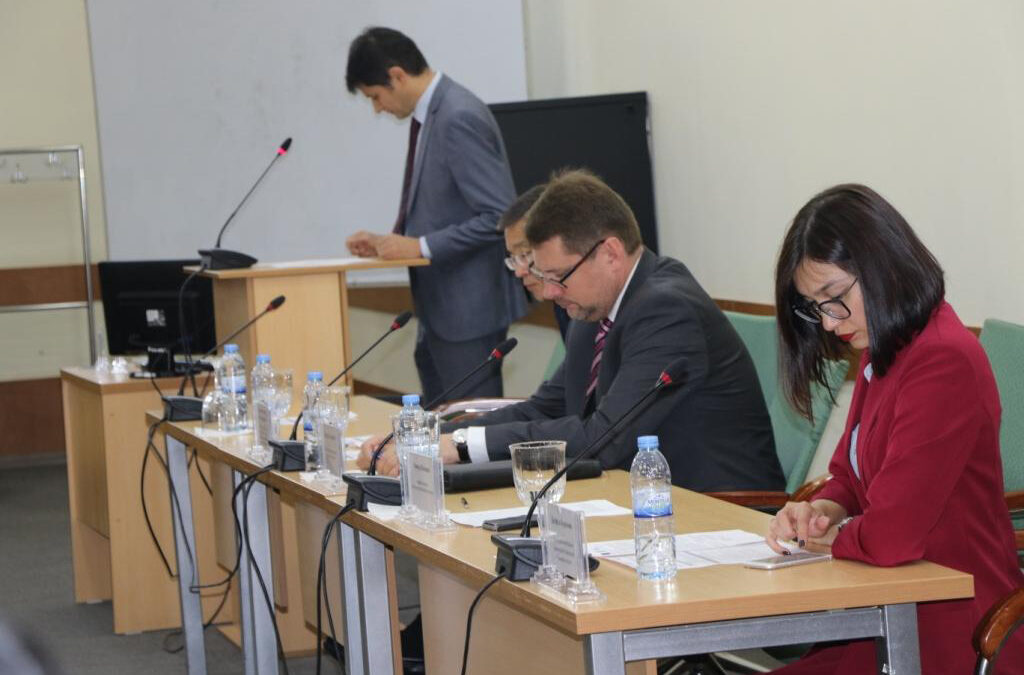
Sep 18, 2018 | News
Today, the ICJ and the Tashkent State University of Law (TSUL) are launching a series of expert discussions on economic, social and cultural rights (ESC) to advance civil society in promoting these rights in Uzbekistan.
These expert discussions are part of the project “Access to justice in economic, social and cultural rights project (ACCESS)” supported by the European Union.
They aimed to increase awareness about the implementation of international law and standards on ESC rights before national courts, to facilitate access to justice for ESC rights and effective use of international human rights law for ESC rights.
Every two months, they will bring together lawyers, advocates, specialists, academia and law students via interactive discussions, research papers, peer review articles and policy papers. Selected papers will be published by the end of 2019.
“The cooperation of our university with the ICJ and with support of the European Union opens big perspectives for all of us,” said Esemurat Kaniyazov, Rector of TSUL and Deputy minister of justice of the Republic of Uzbekistan.
“Tashkent State University of Law (TSUL) is happy to start cooperation with the International Commission of Jurists (ICJ), which will have an impact into further increase of awareness level of the society about implementation of the international legal norms and standards in economic, social and cultural rights in domestic courts, access to justice from point of view of economic, social and cultural rights and also effective application of international human rights law for protection of these rights,” he added.
“So, planned cooperation will affect further progress in conducting research of the normative and legal base of Uzbekistan in economic, social and cultural tights and follow the obligations of the international human rights law,” Kaniyazov said.
“These discussions on economic, social and cultural rights as justiciable rights in light of international human rights law are crucial for the understanding the legal nature of ESC rights and ability of individuals to have access to justice when defending them,” said Temur Shakirov, Senior legal adviser of ICJ.
“Economic, social and cultural rights including the right to work and equitable conditions of work, social security, family life and access to housing, food, water, health care and education and other human rights can and must be guaranteed as enshrined in the International Covenant on Economic, Social and Cultural rights to which Uzbekistan is a party. The ICJ looks forward to this initiative we are starting jointly with the TSUL,” he added.
Contact:
Dilfuza Kurolova, ICJ Legal consultant, t: +998 90 9050099 ; e: dilfuza.kurolova(a)icj.org









